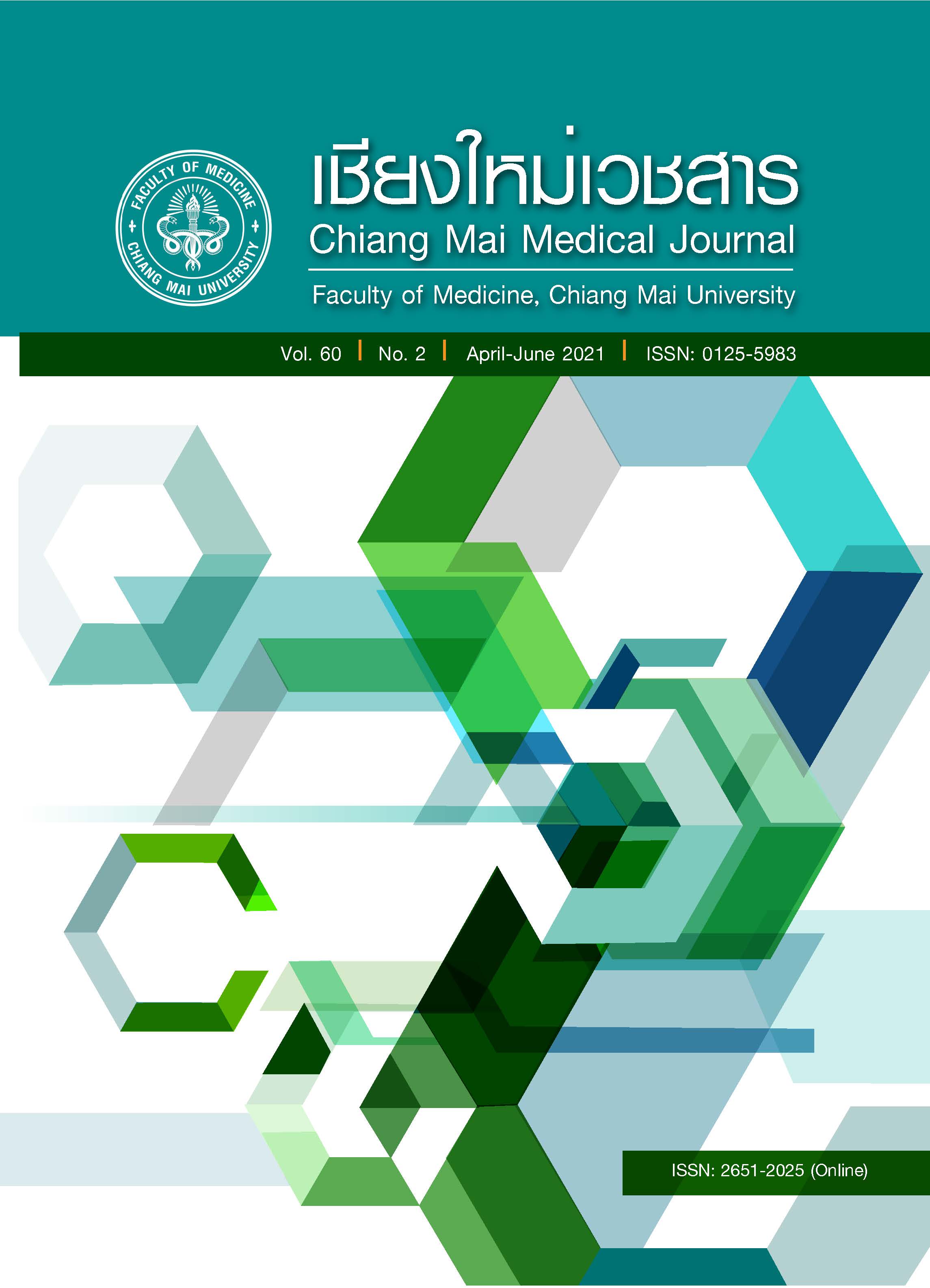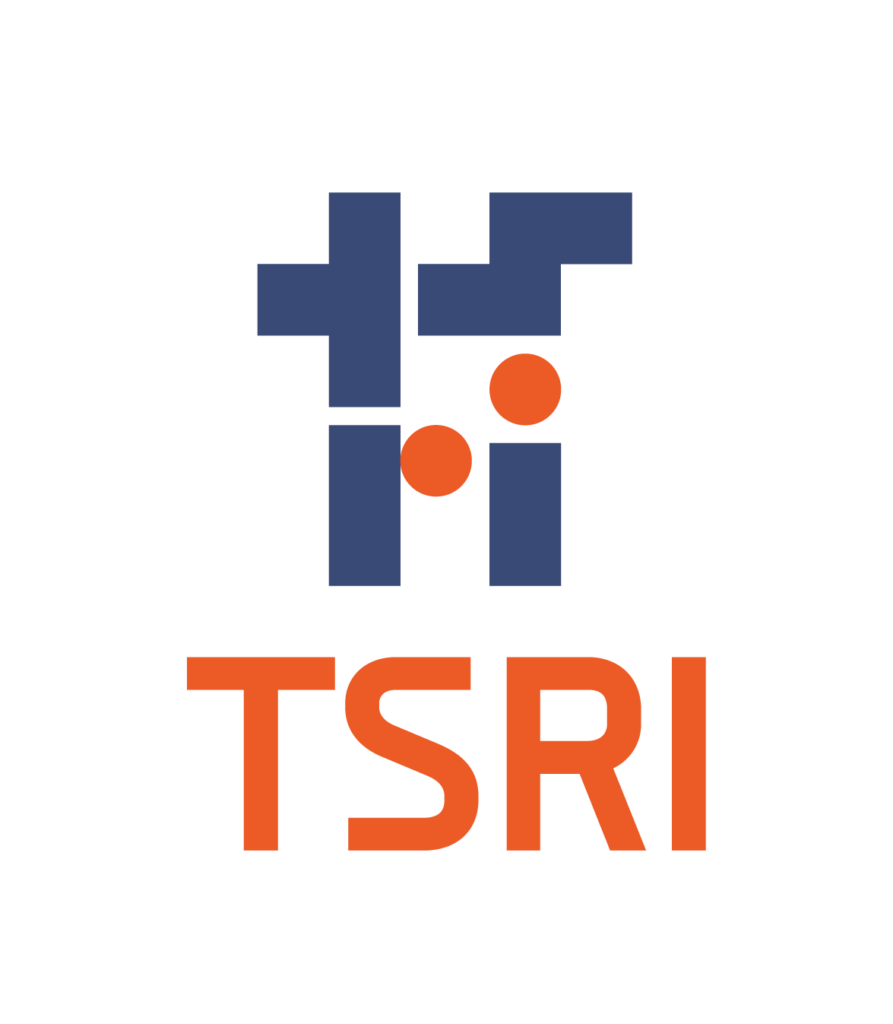ความปลอดภัยต่อระบบการหายใจและไหลเวียนโลหิตในการฝึกกล้ามเนื้อหายใจด้วยอุปกรณ์ฝึกหายใจ NU_spiroBreathe ในอาสาสมัครสุขภาพดี
ความปลอดภัยของการฝึกหายใจด้วย NU_spiroBreathe
คำสำคัญ:
การฝึกกล้ามเนื้อหายใจ, อุปกรณ์ช่วยฝึกสมรรถภาพการหายใจ, อาสาสมัครสุขภาพดี, ตัวแปรทางระบบไหลเวียนโลหิตและทางเดินอาหารบทคัดย่อ
วัตถุประสงค์ อุปกรณ์ช่วยฝึกสมรรถภาพการหายใจ NU_spiroBreathe ได้มีการพัฒนาเพื่อนำมาใช้ในการฝึกกล้ามเนื้อหายใจ อย่างไรก็ตาม ยังไม่มีการศึกษาผลของการฝึกแบบเฉียบพลันต่อตัวแปรตัวแปรทางระบบไหลเวียนโลหิตและทางเดินหายใจ ซึ่งสะท้อนถึงความปลอดภัยของการใช้งานในมนุษย์ เพื่อศึกษาการตอบสนองเฉียบพลันของตัวแปรระบบไหลเวียนโลหิตและทางเดินหายใจจากการฝึกกล้ามเนื้อหายใจด้วยอุปกรณ์ช่วยฝึกสมรรถภาพการหายใจ NU_spiroBreathe ในผู้ที่มีสุขภาพดี
วิธีการ ทำการศึกษาในอาสาสมัครเพศหญิงอายุ 20-30 ปี สุขภาพดี ไม่มีโรคประจำตัว และมีกิจกรรมทางกายระดับเบาถึงปานกลาง (n=9) ทำการฝึกกล้ามเนื้อหายใจด้วยอุปกรณ์ NU_spiroBreathe ด้วยแรงต้าน 10 เซนติเมตรน้ำ 10 ครั้งต่อชุด ทั้งหมด 3 ชุด ขณะพักก่อนการฝึก ระหว่างการฝึก และหลังการฝึกนาน 30 นาที ทำการวัดตัวแปรทางระบบไหลเวียนโลหิตและทางเดินหายใจ (ความดันโลหิต อัตราชีพจร ความอิ่มตัวของออกซิเจนในเลือด) จากนั้นทำการเปรียบเทียบการเปลี่ยนแปลงด้วยสถิติ k-related sample Friedman test
ผลการศึกษา พบว่าการฝึกกล้ามเนื้อหายใจด้วยอุปกรณ์ NU_spiroBreathe ไม่พบการเปลี่ยนแปลงของตัวแปรทางระบบไหลเวียนโลหิตและทางเดินหายใจก่อน ระหว่างการฝึก และหลังการฝึกอย่างมีนัยสำคัญทางสถิติ (p > 0.05)
สรุป การฝึกกล้ามเนื้อหายใจด้วยอุปกรณ์ NU_spiroBreathe ไม่มีผลต่อตัวแปรทางระบบไหลเวียนโลหิตและทางเดินหายใจ แสดงถึงความปลอดภัยในการใช้สำหรับผู้ที่มีสุขภาพดี
เอกสารอ้างอิง
Vorona S, Sabatini U, Al-Maqbali S, Bertoni M, Dres M, Bissett B, et al. Inspiratory muscle re-habilitation in critically ill adults a systematic review and meta-analysis. Ann Am Thorac Soc. 2018;15:735–44.
Cordeiro ALL, Melo TA de, Neves D, Luna J, Esquivel MS, Guimarães ARF, et al. Inspira-tory muscle training and functional capacity in patients undergoing cardiac surgery. Braz J Cardiovasc Surg. 2016;31:140–4.
Zeren M, Demir R, Yigit Z, Gurses HN. Effects of inspiratory muscle training on pulmonary function, respiratory muscle strength and functional capacity in patients with atrial fibrillation: a randomized controlled trial. Clin Rehabil. 2016;30:1165–74.
Mundada N, Retharekar S. Effect of respira-tory muscle training as an adjunct to conven-tional therapy in phase I cardiac rehabilita-tion for median sternotomy patients. Int J Ther Rehabil Res. 2016;5:224–33.
Menezes KK, Nascimento LR, Ada L, Polese JC, Avelino PR, Teixeira-Salmela LF. Respira-tory muscle training increases respiratory muscle strength and reduces respiratory complications after stroke: a systematic re-view. J Physiother. 2016;62:138-44.
Chen PC, Liaw MY, Wang LY, Tsai YC, Hsin YJ, Chen YC, et al. Inspiratory muscle train-ing in stroke patients with congestive heart failure: A CONSORT-compliant prospective randomized single-blind controlled trial. Med Baltim. 2016;95:e4856. doi: 10.1097/MD.0000000000004856.
Menezes KKP, Nascimento LR, Polese JC, Ada L, Teixeira-Salmela LF. Effect of high-intensity home-based respiratory muscle training on strength of respiratory muscles following a stroke: a protocol for a randomized con-trolled trial. Braz J Phys Ther. 2017;21:372–7.
Sutbeyaz ST, Koseoglu F, Inan L, Coskun O. Respiratory muscle training improves cardio-pulmonary function and exercise tolerance in subjects with subacute stroke: a randomized controlled trial. Clin Rehabil. 2010;24:240–50.
Gosselink R, De Vos J, van den Heuvel SP, Segers J, Decramer M, Kwakkel G. Impact of inspiratory muscle training in patients with COPD: what is the evidence? Eur Respir J. 2011;37:416–25.
Lotters F, van Tol B, Kwakkel G, Gosselink R. Effects of controlled inspiratory muscle train-ing in patients with COPD: a meta-analysis. Eur Respir J. 2002;20:570–7.
Ferreira GD, Costa AC, Plentz RD, Coronel CC, Sbruzzi G. Respiratory training improved ventilatory function and respiratory muscle strength in patients with multiple sclerosis and lateral amyotrophic sclerosis: system-atic review and meta-analysis. Physiotherapy. 2016;102:221–8.
Albuquerque IM de, Rossoni CS, Cardoso DM, Paiva DN, Fregonezi G. Effects of short inspir-atory muscle training on inspiratory muscle strength and functional capacity in physically active elderly: A quasi-experimental study. Eur J Physiother. 2013;15:11–7.
Souza H, Rocha T, Pessoa M, Rattes C, Brandao D, Fregonezi G, et al. Effects of in-spiratory muscle training in elderly women on respiratory muscle strength, diaphragm thickness and mobility. J Gerontol A Biol Sci Med Sci. 2014;69:1545–53.
Pereira FD, Batista WO, Fuly P dos SC, Alves Junior E de D, Silva EB da. Physical activity and respiratory muscle strength in elderly: a systematic review. Fisioter Em Mov. 2014;27: 129–39.
Menezes KK, Nascimento LR, Ada L, Polese JC, Avelino PR, Teixeira-Salmela LF. Respiratory muscle training increases respiratory muscle strength and reduces respiratory complications after stroke: a systematic review. J Physiother. 2016;62:138–44.
Chen PC, Liaw MY, Wang LY, Tsai YC, Hsin YJ, Chen YC, et al. Inspiratory muscle training in stroke patients with congestive heart failure: A CONSORT-compliant prospective rand-omized single-blind controlled trial. Med Baltim. 2016;95:e4856.
Nepomuceno BRV, Barreto M de S, Almeida NC, Guerreiro CF, Xavier-Souza E, Neto MG. Safety and efficacy of inspiratory muscle training for preventing adverse outcomes in patients at risk of prolonged hospitalisation. Trials. 2017;18:1–8.
Crisafulli E, Costi S, Fabbri LM, Clini EM. Res-piratory muscles training in COPD patients. Int J COPD. 2007;2:19–25.
Zeren M, Demir R, Yigit Z, Gurses HN. Effects of inspiratory muscle training on pulmonary function, respiratory muscle strength and functional capacity in patients with atrial fi-brillation: a randomized controlled trial. Clin Rehabil. 2016;30:1165–74.
Gosselink R, De Vos J, van den Heuvel SP, Segers J, Decramer M, Kwakkel G. Impact of inspiratory muscle training in patients with COPD: what is the evidence? Eur Respir J. 2011;37:416–25.
Leelarungrayub J, Pinkaew D, Yankai A, Chau-trakoon B, Kuntain R. Simple artificial training device for respiratory muscle strength and lung volumes in healthy young male and female subjects: A pilot study. J Bodyw Mov Ther. 2017;21:995–1002. 22. Jones C, Laoakka T, Boonsawat W. Inspiratory muscle training increases elevated arm exer-cise endurance but not 6-minute walk dis-tance in the elderly. Thai J Phys Ther. 2006; 28:23–34.
Chuachan S, Reechaipichitkul W, Jones C. Effects of inspiratory muscle training using a new breathing device (BreatheMAX) for 7 days in patients with mechanical ventilator dependence: a pilot study of randomized controlled trial. J Med Tech Phy Ther. 2011; 23:165–76.
Sutbeyaz ST, Koseoglu F, Inan L, Coskun O. Respiratory muscle training improves cardio-pulmonary function and exercise tolerance in subjects with subacute stroke: a randomized controlled trial. Clin Rehabil. 2010;24:240–50.
Albuquerque IM de, Rossoni CS, Cardoso DM, Paiva DN, Fregonezi G. Effects of short inspir-atory muscle training on inspiratory muscle strength and functional capacity in physically active elderly: A quasi-experimental study. Eur J Physiother. 2013;15:11–7.
Kluayhomthong S, Khrisanapant W, Jones C. Effectiveness of a new breathing device ‘BreatheMAX®’ to increase airway secretion clearance in patients with ventilatory de-pendence. J Med Tech Phy Ther. 2011;23:95–108.
Poowaruttanawiwit P, Thipsalid K, Angsupa-choti P, Rachapradit N, Sayasathid J, Chidnok W, et al. The development of low cost posi-tive end-expiratory pressure device for post cardiothoracic surgery patient. In: National Research Council of Thailand, editor. Thai-land Research Symposium 2016. Bangkok: National Research Council of Thailand; 2016. p. 143–52. [in Thai]
DeMers D, Wachs D. Physiology, Mean Arte-rial Pressure. StatPearls: StatPearls Publishing; 2019.
WHO Expert Consultation. Appropriate body-mass index for Asian populations and its im-plications for policy and intervention strate-gies. Lancet. 2004;363:157–63.
McConnell A. Respiratory muscle training : Theory and practice. Churchill: Livingstone; 2013. p. 256.
Rattanawiwatpong P, Khunphasee A, Pon-gurgsorn C, Intarakamhang P. Validity and re-liability of the Thai version of Short Format International Physical Activity Questionnaire (IPAQ). J Thai Rehabil Med. 2006;16:147–60.
Hart N, Sylvester K, Ward S, Cramer D, Mox-ham J, Polkey MI. Evaluation of an inspira-tory muscle trainer in healthy humans. Respir Med. 2001;95:526–31.
Kawauchi TS, Umeda IIK, Braga LM, Mansur A de P, Rossi-Neto JM, Guerra de Moraes Rego Sousa A, et al. Is there any benefit using low-intensity inspiratory and peripheral muscle training in heart failure? A randomized clini-cal trial. Clin Res Cardiol. 2017;106:676-85.
Tonella RM, Ratti L, Delazari LEB, Junior CF, Da Silva PL, Herran A, et al. Inspiratory mus-cle training in the intensive care unit: a new perspective. J Clin Med Res. 2017;9:929-34.
ดาวน์โหลด
เผยแพร่แล้ว
รูปแบบการอ้างอิง
ฉบับ
ประเภทบทความ
สัญญาอนุญาต

อนุญาตภายใต้เงื่อนไข Creative Commons Attribution-NonCommercial-NoDerivatives 4.0 International License.










